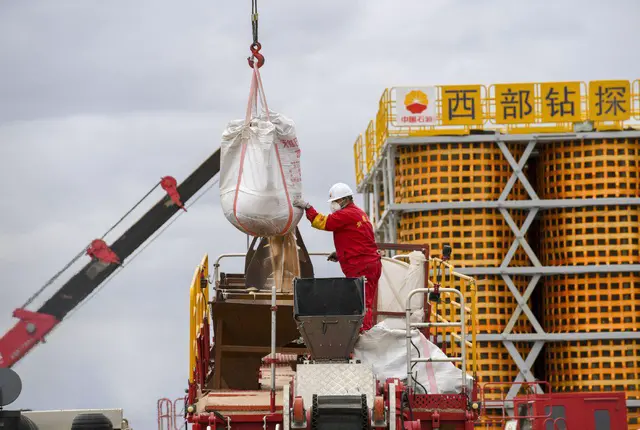China National Petroleum Corp, also known as PetroChina, the country's largest oil and gas producer and supplier, is stepping up its oil and gas exploration focus to boost high quality development and further unlock the nation's oil and gas reserves to ensure energy security.
The company's domestic crude output rose 1.34 percent year-on-year in February, while natural gas production grew 8.34 percent from the same period a year ago.
The company is also planning to increase capital expenditure on domestic exploration to boost higher energy output, which is also in accordance with the government's efforts to raise domestic output to bolster national energy security.
Venture exploration investment for domestic exploration and development this year will be raised to 5 billion yuan ($744 million) from 1 billion yuan in 2018. Incentives for major oil and gas exploration and discovery and significant oil and gas output will also be raised, it said.
This is also in accordance with the other two major oil and gas companies in China, China National Offshore Oil Corp and China Petroleum and Chemical Corp, which have also focused on raising domestic output to bolster national energy security.
The company has been focusing its exploration efforts in the Xinjiang Uygur autonomous region and Sichuan province in the past year with major breakthroughs in upstream exploration and discovery, boosting supply from the aging fields at home.
It is also planning to ramp up shale oil exploration efforts at the Bohai Bay Basin, Songliao Basin, Ordos Basin and Junggar Basin.
Eyeing to produce 50,000 metric tons of shale oil from the Bohai Bay Basin by the end of this year and to achieve production of 500,000 tons of shale oil by 2025 to further develop the clean fuel and ensure national energy security, the company has recently reported steady daily production of shale oil of 20-30 cubic meters from its Dagang Oilfield, a sign of the industrial development of continental shale oil in the Bohai Bay Basin.
Analysts said the company's efforts are in accordance with the growing demand for oil and gas in the country and the company's adjustment to the stringent environmental regulations. "The exploration of shale oil will help ease the high dependence on foreign oil and gas imports," said Li Li, research director at energy consulting company ICIS.
It also follows years of declining output and rising demand.
China has become the world's largest crude and gas importer, importing 440 million tons of crude oil and 125.4 billion cubic meters of gas in 2018, up 11 percent and 31.7 percent year-on-year. The foreign oil and gas dependence ratio reached 69.8 percent and 45.3 percent, according to China National Petroleum Corp's Economics and Technology Research Institute.
(CHINA DAILY)
 简体中文
简体中文




